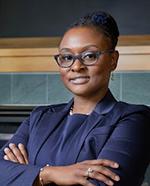FOCUS
‘Equity work is not a zero-sum game’
By Tauheedah Baker-Jones and Suzanne Bouffard
Categories: Equity, Learning systems/planning, Resources, System leadershipDecember 2021
Read the remaining content with membership access. Join or log in below to continue.
Sed ut perspiciatis unde omnis iste natus error sit voluptatem accusantium doloremque laudantium, totam rem aperiam, eaque ipsa quae ab illo inventore veritatis et quasi architecto beatae vitae dicta sunt explicabo. Nemo enim ipsam voluptatem quia voluptas sit aspernatur aut odit aut fugit, sed quia consequuntur magni dolores eos qui ratione voluptatem sequi nesciunt. Neque porro quisquam est, qui dolorem ipsum quia dolor sit amet, consectetur, adipisci velit, sed quia non numquam eius modi tempora incidunt ut labore et dolore magnam aliquam quaerat voluptatem.
Recommendations for supporting equity leaders
- Establish a clear understanding of and commitment to equity goals, and align your mission and policies with those goals.
- Allocate resources for an equity officer and equity team as well as for their learning and development.
- Embed equity in every department in the district, and empower the equity officer to build relationships across departments.
- Position the equity officer as part of the senior leadership team, and give the officer voice and decision-making power.
- Together with the equity officer, build relationships with the community, and communicate your equity vision and goals.
Source: Anderson, J. (2021). 5 ways to support equity leaders. Usable Knowledge. www.gse.harvard.edu/news/uk/21/06/five-ways-support-equity-leaders
Categories: Equity, Learning systems/planning, Resources, System leadership
Recent Issues
GLOBAL PERSPECTIVES
June 2024
What does professional learning look like around the world? This issue...
WHERE TECHNOLOGY CAN TAKE US
April 2024
Technology is both a topic and a tool for professional learning. This...
EVALUATING PROFESSIONAL LEARNING
February 2024
How do you know your professional learning is working? This issue digs...
TAKING THE NEXT STEP
December 2023
Professional learning can open up new roles and challenges and help...












